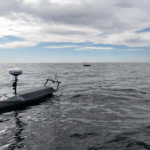
The Defense Department’s Chief Digital and Artificial Intelligence Office (CDAO) on Thursday said it is launching a new effort that encompasses the acquisition of the infrastructure and data it will own while fostering steady competition that leverages the data to meet warfighters’ requirements. There are three components to the Open Data and Applications Government-owned Interoperable Repositories (Open DAGIR), the first being the government acquiring and owning data, the infrastructure it resides on, and the related processing, a senior defense official…

 By
By 











